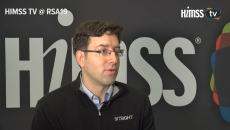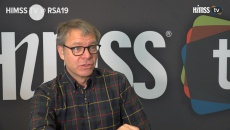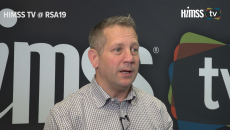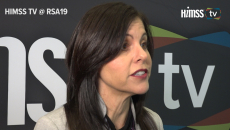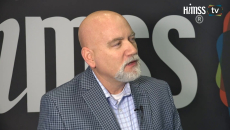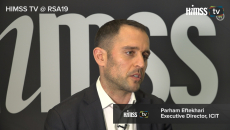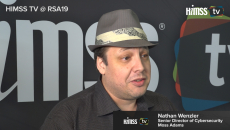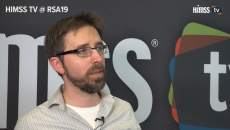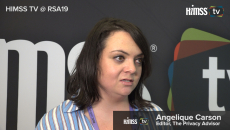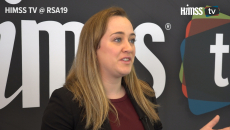RSA 2019
Healthcare organizations need to assess and monitor business relationships because of the dangers of cyber threats, says BitSight Vice President Jacob Olcott.
The security vendor is working to protect organizations from such threats as the Scarlet Widow scam and the display name deception tactic in a world where geopolitical boundaries do not apply to the internet.
Cradlepoint CSO Todd Kelly says as 5G becomes more prolific in the next several years, the use of mobile and IoT devices will bring better healthcare delivery to the edge of networks.
Healthcare organizations big and small still need to focus on the basics and keep working to improve patients’ privacy, according to CynergisTek EVP Angela Rivera.
IronNet Cybersecurity CTO Michael Ehrlich warns of those efforts trying to change our way of life, such as China with IP theft, Russia spreading discontent, and Iran and North Korea having weapons capabilities.
Parham Eftekhari, executive director of the Institute for Critical Infrastructure Technology, says hospitals have to demand more secure products so manufacturers wake up to realize prospective clients are buying based on security.
Nathan Wenzler, senior director of cybersecurity at Moss Adams, says the idea that AI needs no management simply isn’t true; instead, smart people are needed to make decisions about the data and findings.
Andrew Pendergast, VP of product at ThreatConnect, explains the value of external threat intelligence and why he is skeptical about AI but not machine learning.
Angelique Carson, editor of The Privacy Advisor at IAPP, says that EU citizens are better protected now that the General Data Protection Regulation is in place.
Maggie Brunner, program director of Cybersecurity, Emergency Communications & Technology with the National Governors Association, says healthcare CIOs can learn from state security strategies.
